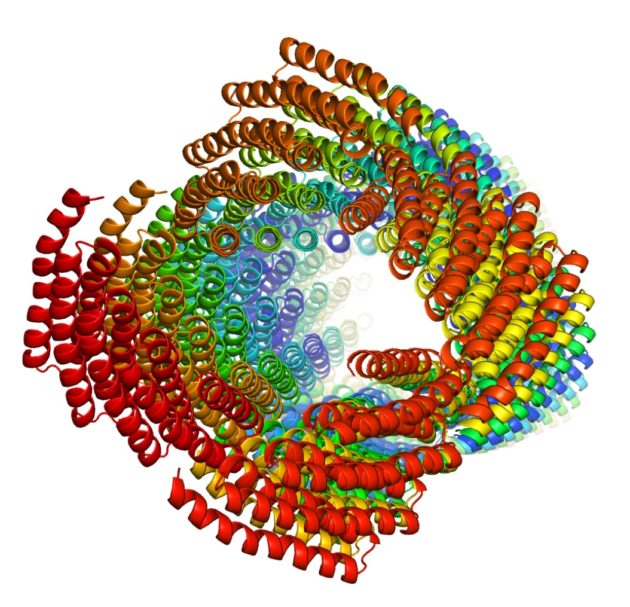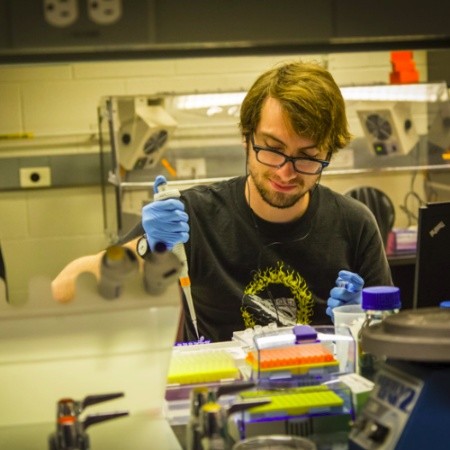
A team led by MolES faculty member and bioengineering Professor Valerie Daggett has developed synthetic peptides that target and inhibit the small, toxic protein aggregates that are thought to trigger Alzheimer's disease. Dylan Shea, a molecular engineering PhD student in the Daggett lab, was the lead author on a new paper describing these findings, published April 19 in the Proceedings of the National Academy of Sciences.

Hao Shen, a molecular engineering PhD candidate in the lab of biochemistry Professor David Baker, was a lead author of a study published in Science describing the creation of self-assembling protein filaments from scratch. The filaments were built from identical protein subunits that snap together spontaneously to form long, helical, thread-like structures which could be used to create new materials for a range of applications, from diagnostics to nano-electronics. Learn more in a related Geekwire story!

At the intersection of genetic engineering and nanoscience, second-year MolE PhD candidate Tyler (Ty) Jorgenson is developing a set of design rules for devices that join biology with solid-state materials. His research focuses on the self-assembly of solid-binding peptides and their interfaces with single-layer atomic (2D) materials, which he says is particularly promising for bioelectronic devices.
Congratulations to Charlie Corredor and Renuka Ramanathan for their success in the 2015 UW Business Plan Competition. Each was a member of a team that won a seed money for their start-up businesses. Both Charlie and Renuka are Ph.D. candidates in the dual title degree in Nanotechnology & Molecular Engineering offer through the MolES Institute.
Ph.D. Program in Molecular Engineering Offers
Collaborative Environment Designed For Impact
The University of Washington introduced a new graduate program in an emerging field of molecular science. Starting in fall of 2014, pioneering students began a path of study that nurtures and develops their professional identities as versatile thinkers in Molecular Engineering, while they earning a doctorate degree from one of the first programs of its kind in the United States.
The program, which is house in the UW Graduate School, was developed by the UW Molecular Engineering & Sciences Institute, one of the nation's premier centers for the study of molecular engineering and nanotechnology. Read More

Professor of Chemical Engineering René Overney has been named the Associate Director for Molecular Engineering (MolE) Education for the new Molecular Engineering Institute. Integral in bringing MolE to the University, Overney took the lead in developing the Chemical Engineering Nanoscience and Molecular Engineering Option, a multidisciplinary undergraduate program with MolE-tailored lecture and laboratory courses.
As the first department on campus to offer a MolE Option program, Chemical Engineering is poised to take the lead in MolE's educational efforts, said Overney. "Chemical Engineering is taking the leadership in coordinating and administrating the MolE Option program, and is also highly instrumental in this regard in the initiation phase of a MolE graduate program." Read More